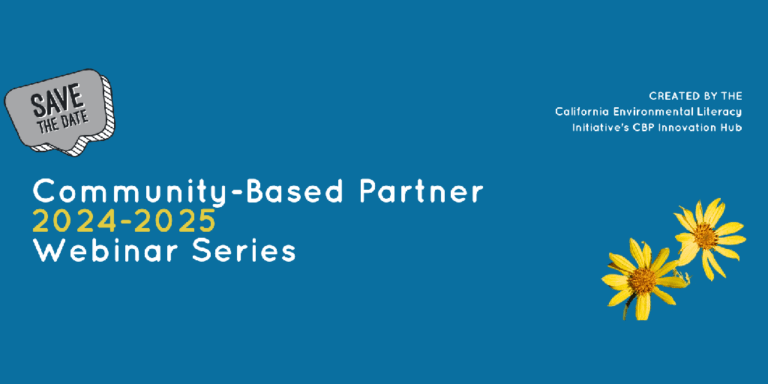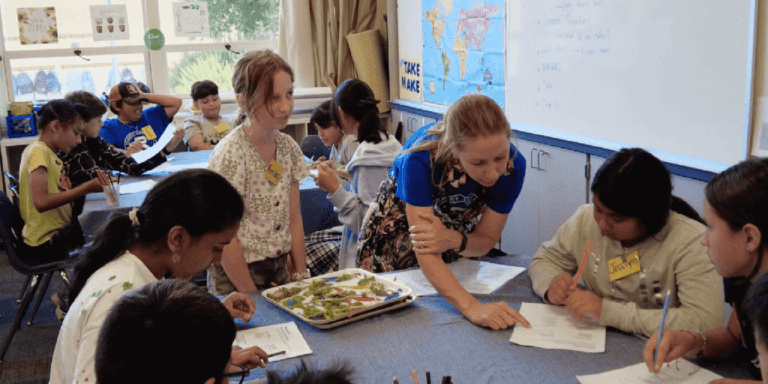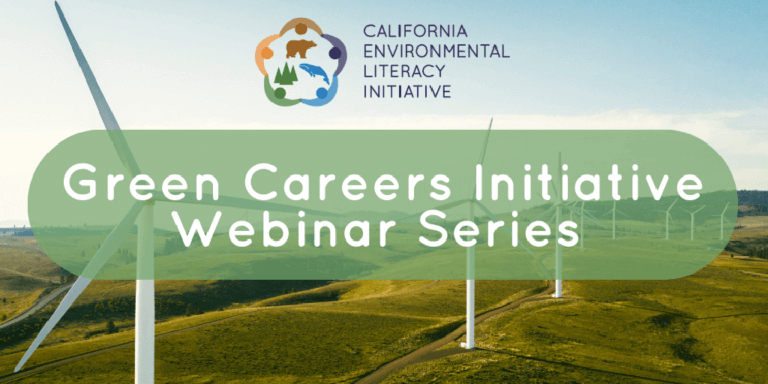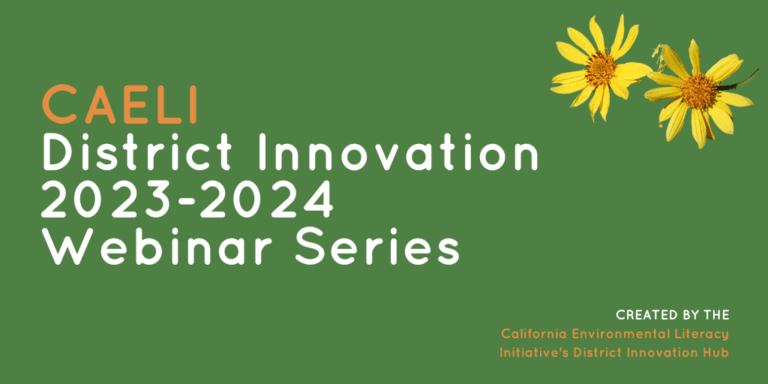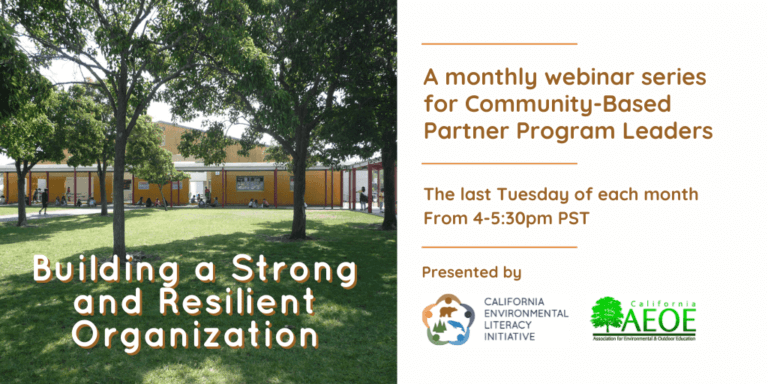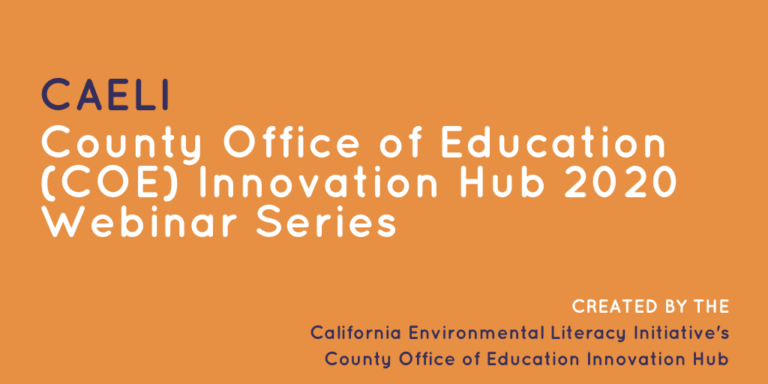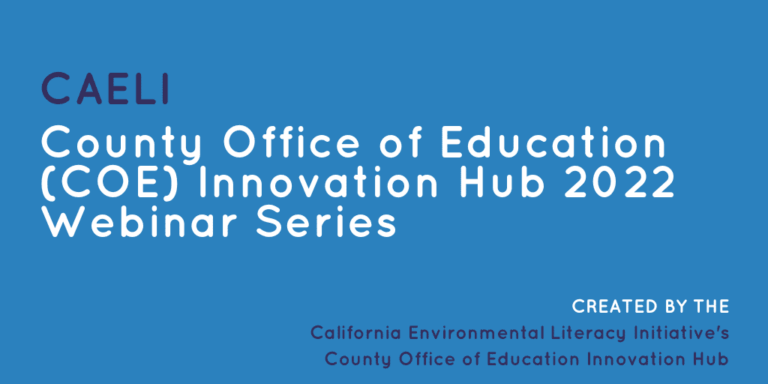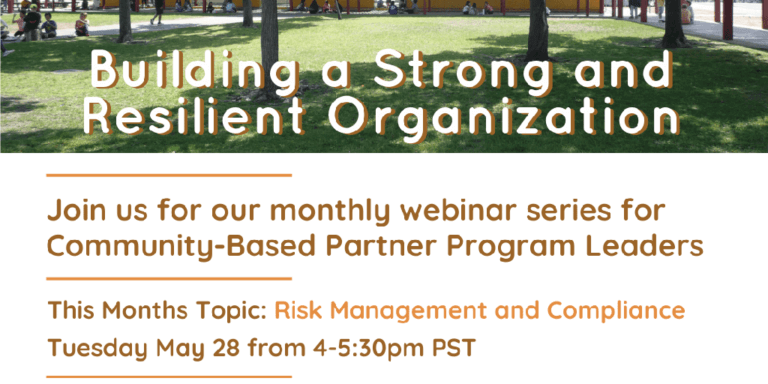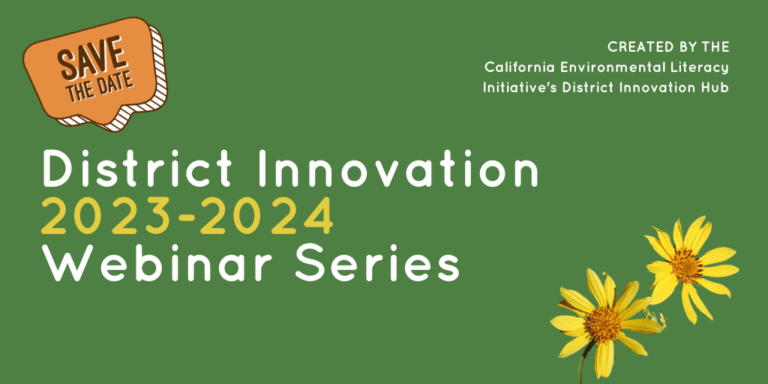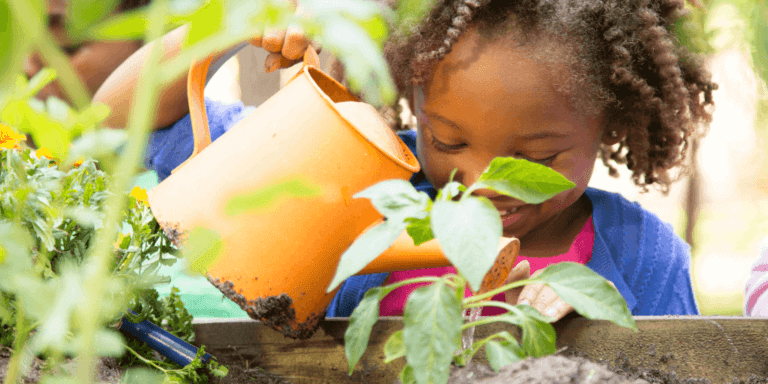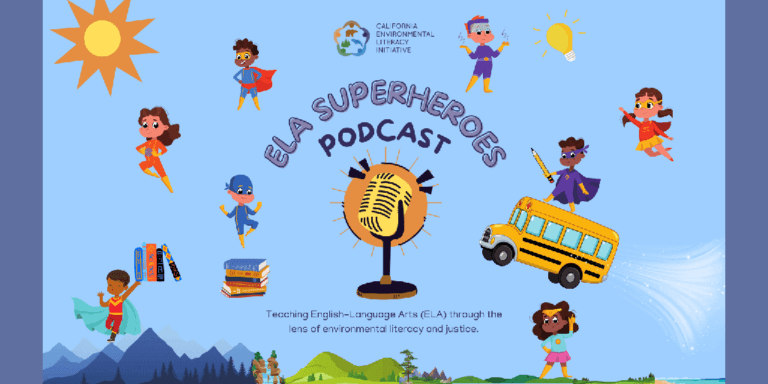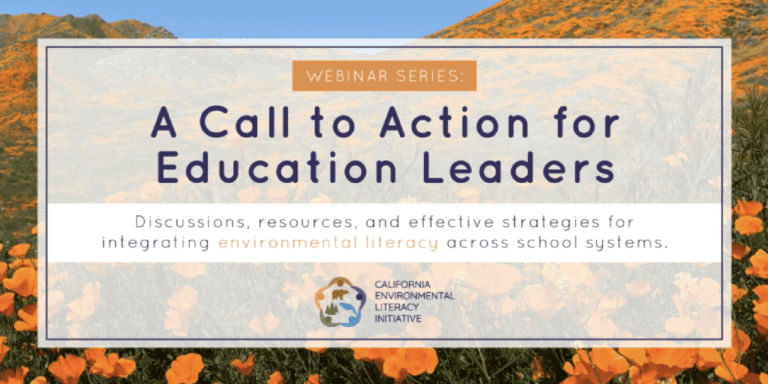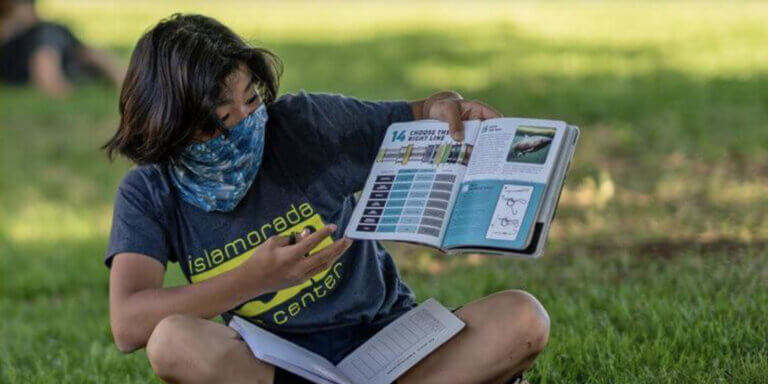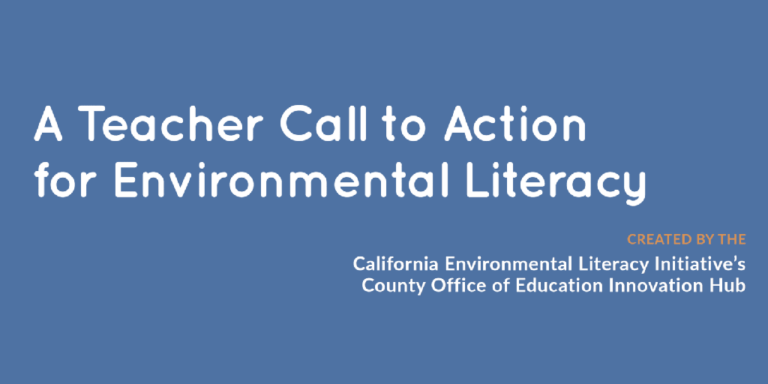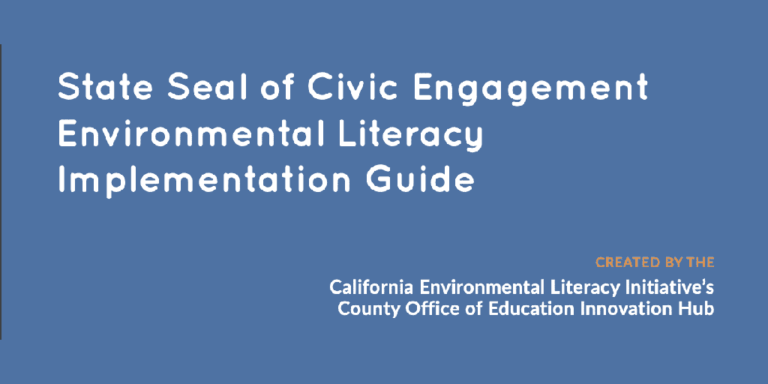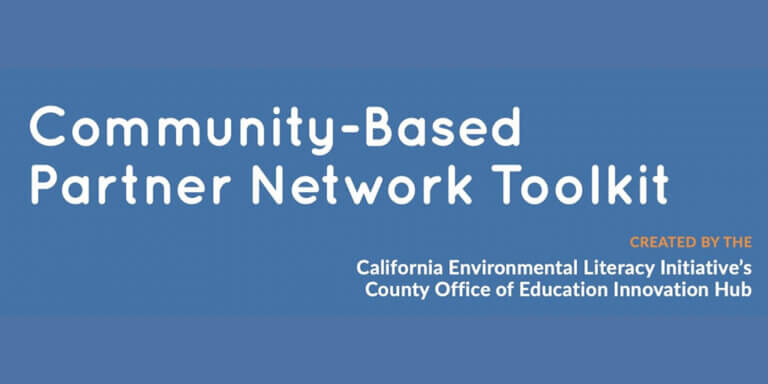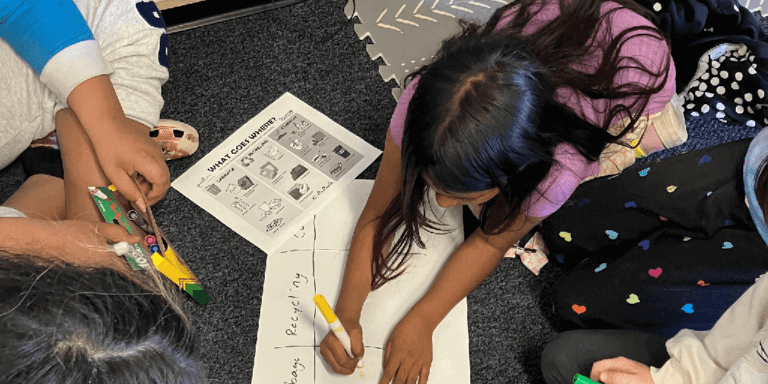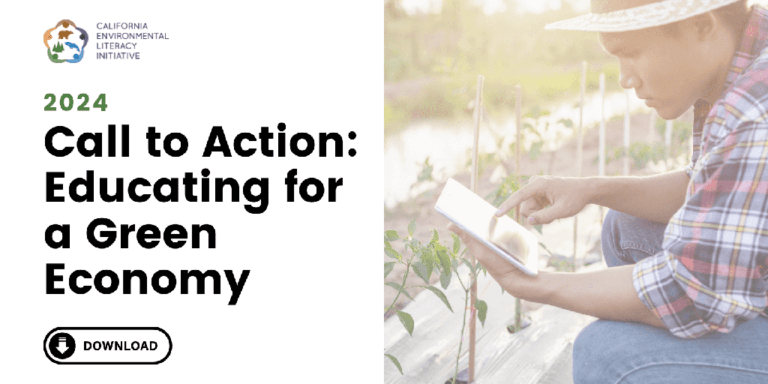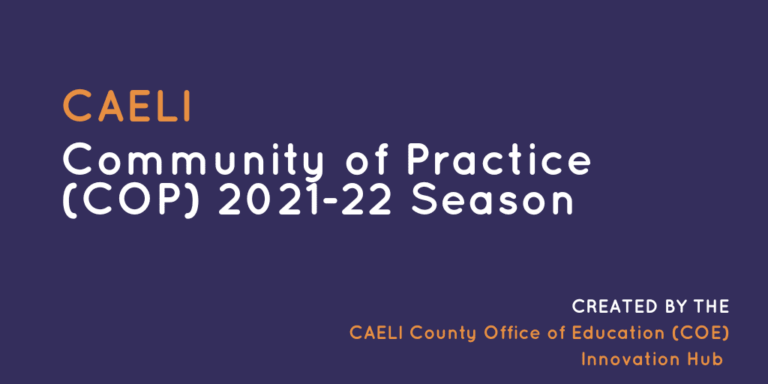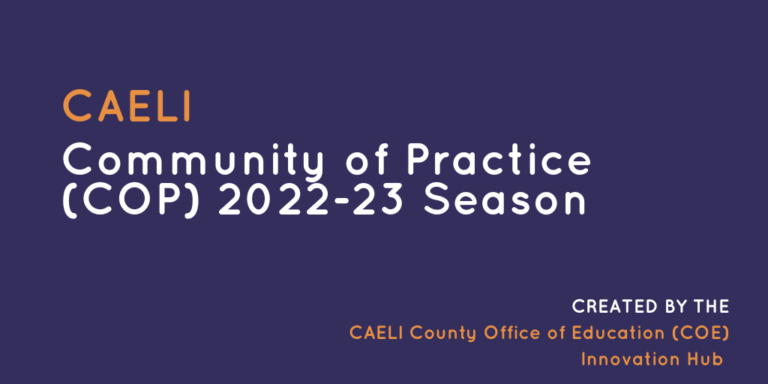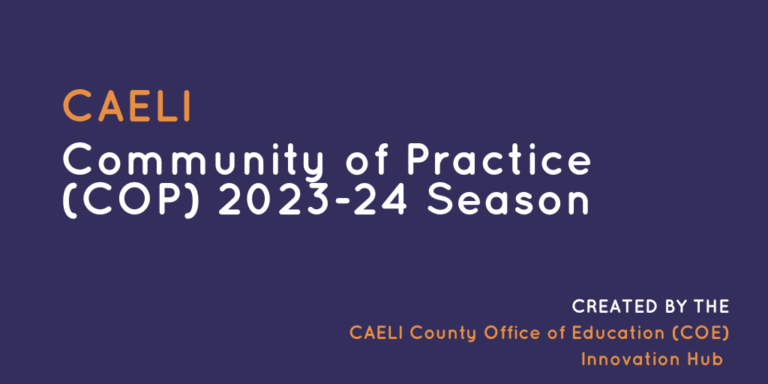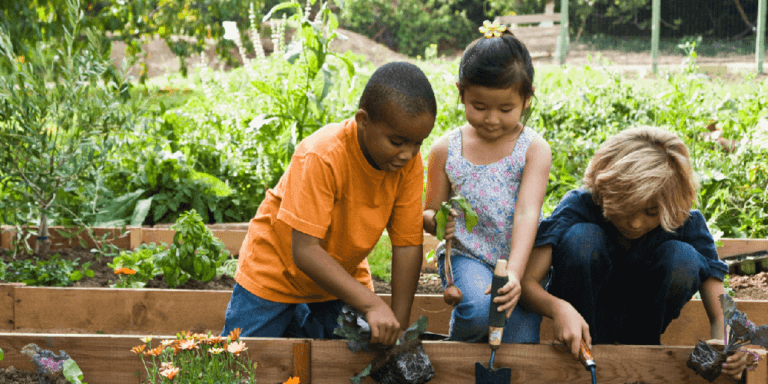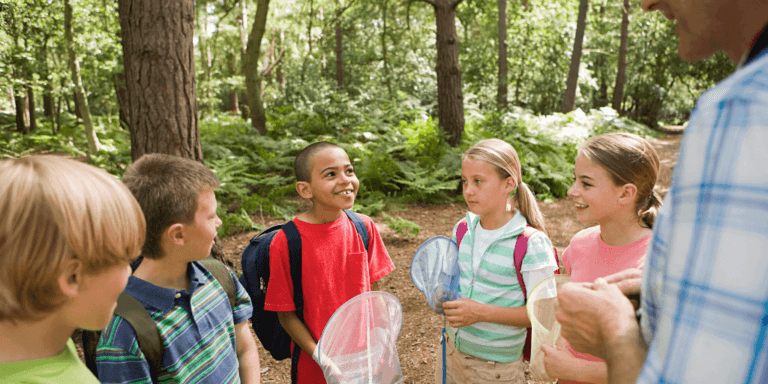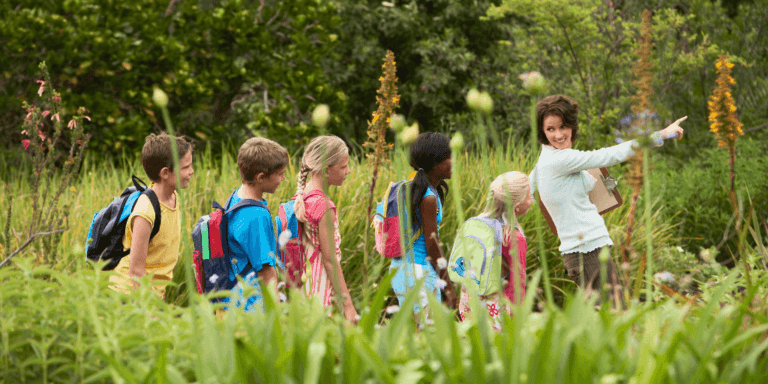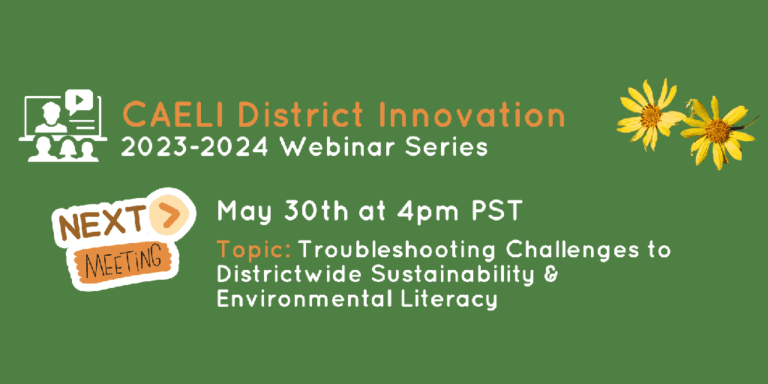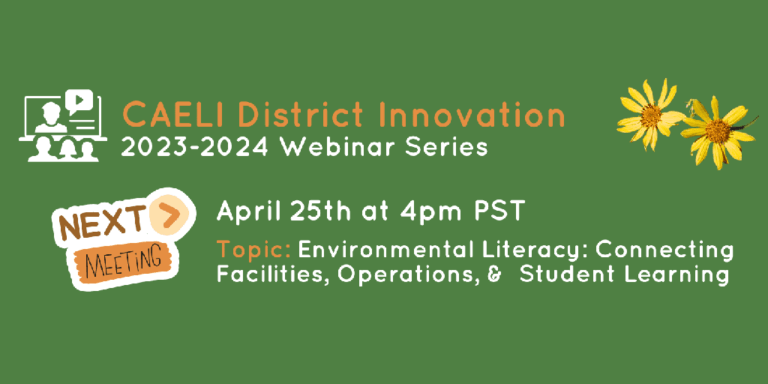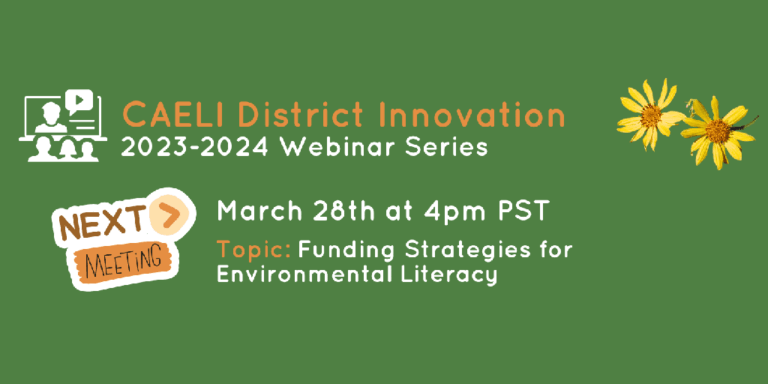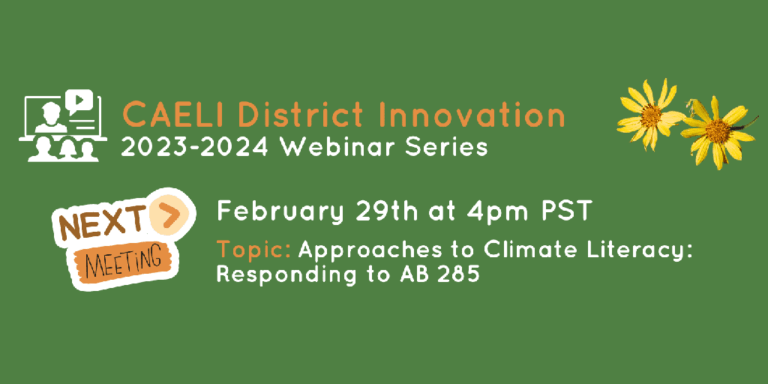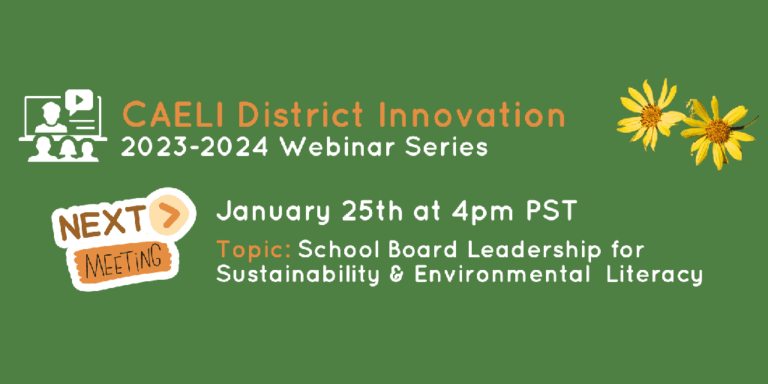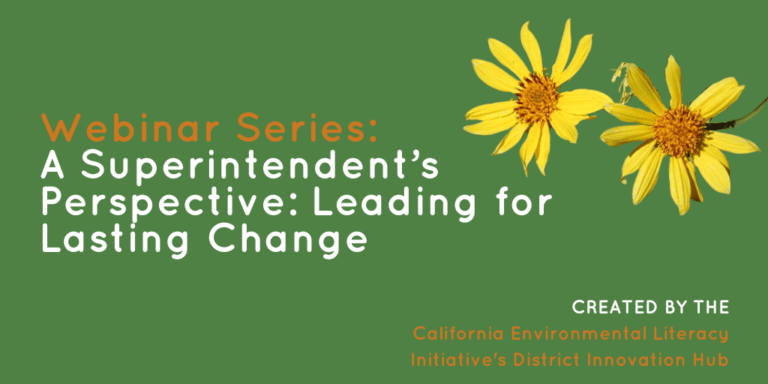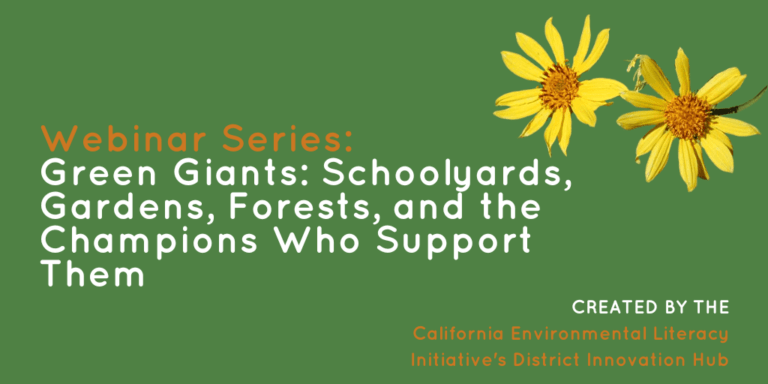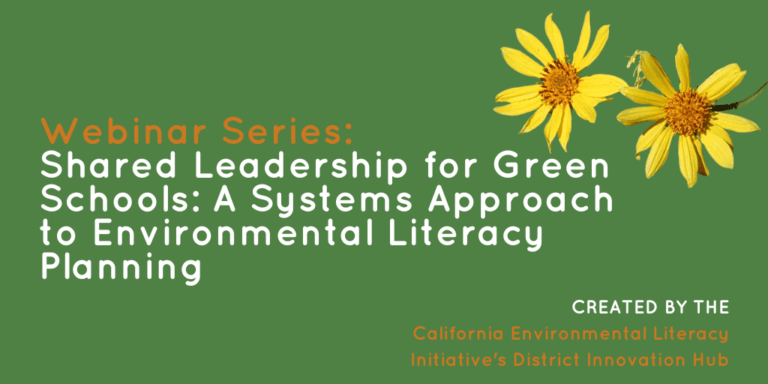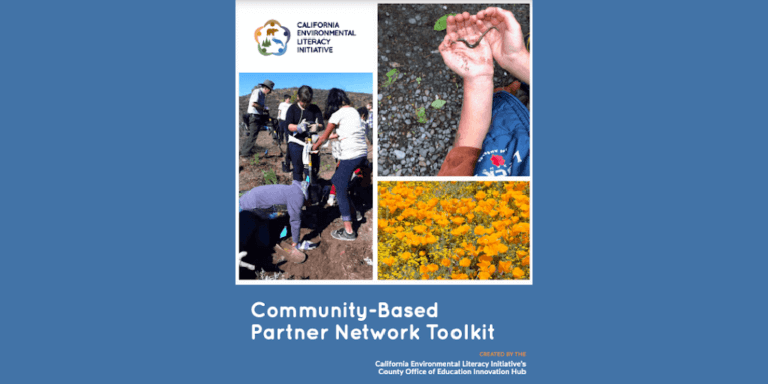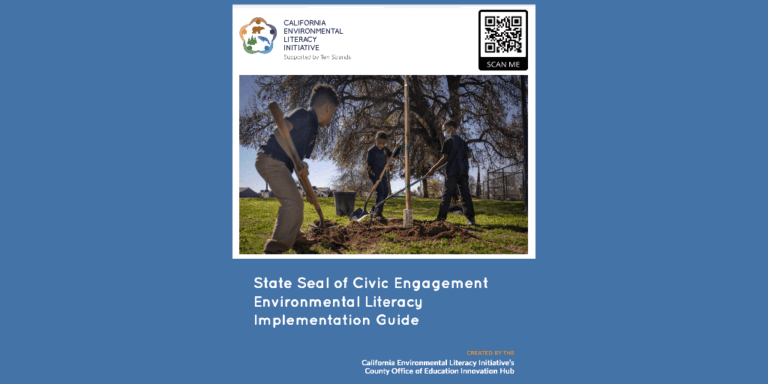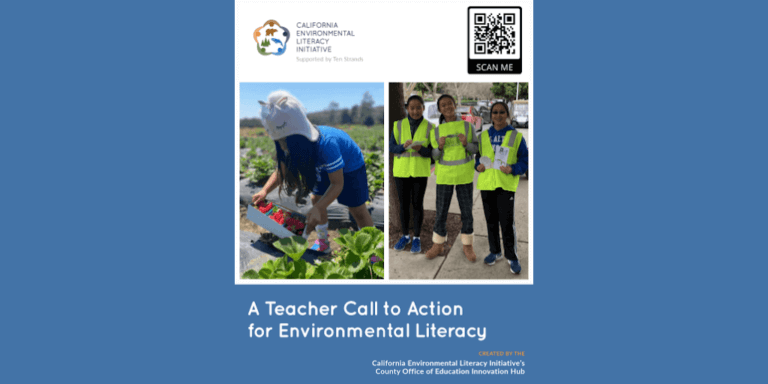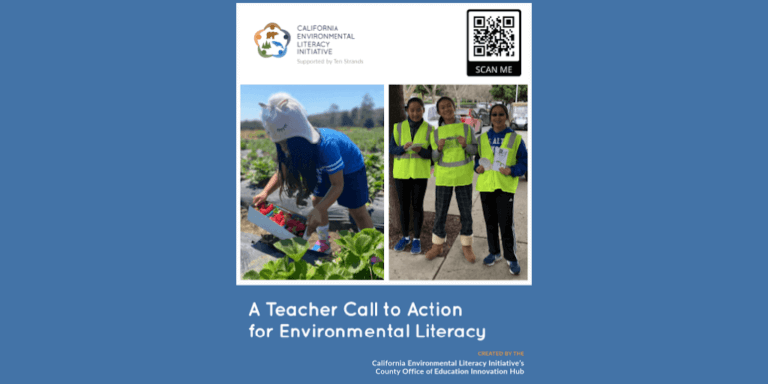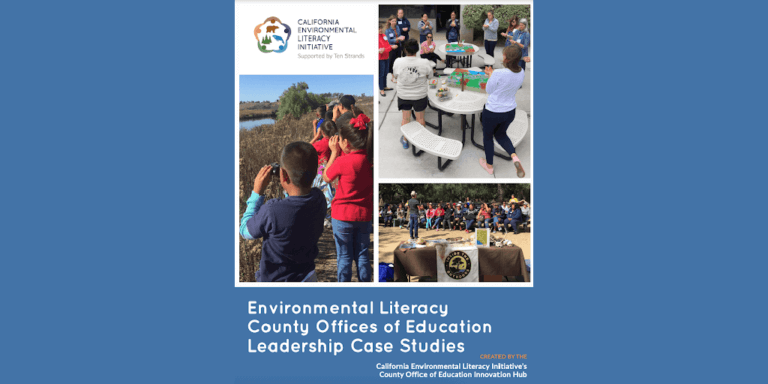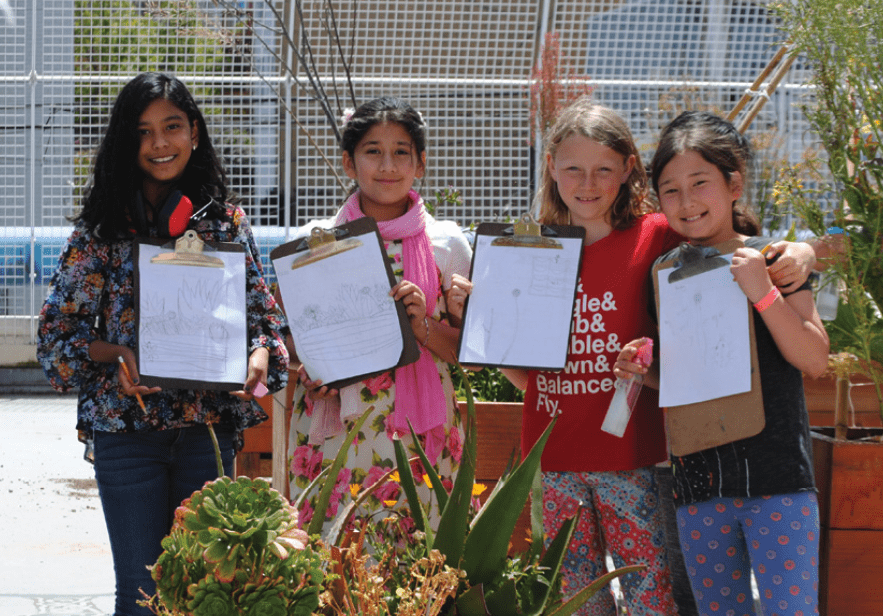Check out our many resources provided to you by CAELI’s Leadership Council! This page provides access to the following resource types along with the audience(s) it best serves:
Case Studies
CAELI members have put together a number of case studies that provide an in-depth overview of environmental literacy efforts at different scales— classroom, site, district, county, etc.
Databases
These are CAELI efforts focused on providing access to partners and important data on the need and progress of efforts across the state.
Community of Practice and Networks
CAELI innovation hubs and working groups host a variety of statewide communities of practice (COP) and networks to help advance environmental literacy across the state.
Programs
CAELI members and leaders support a number of capacity building programs, such as knowledge-to-action fellowships, and in-person meet-ups.
Research / Studies
Toolkits and Advocacy Collaborations
CAELI working groups have developed toolkits that provide curated resources, practical advice, guidance, and information to support users in bringing environmental and climate action to their school communities.
Webinars
CAELI innovation hubs and members of the Leadership Council have hosted webinars and videos that help raise awareness or provide training on key topics relevant to environmental literacy.
Podcasts
In our first podcast series, CAELI’s English-Language Arts Working Group interviewed passionate language arts teachers. Listen to the stories, reflections from educators, and use the teaching snapshot and resources.
Other Important Resources
Check out these other resources that are related to our work.


